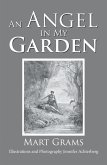Henry Fielding's "Covent-Garden Journal," first published in 1752, is a captivating exploration of the social fabric of 18th-century London through the lens of its bustling theatre district. Composed in the form of a periodical, the work showcases Fielding's keen observational skills and irreverent wit, employing a rich prose style that blends satire with earnest commentary. This collection of essays addresses the vices and virtues of contemporary society, while also reflecting larger themes of morality and the human condition, placing it within the broader context of early modern English literature that aimed to critique and entertain simultaneously. Fielding, a distinguished novelist and playwright, was deeply influenced by his experiences in the legal profession and the theatrical world. Known for his assertive commentary on societal norms and his foundational contributions to the novel form, Fielding's life in London exposed him to the joys and absurdities of the era. His work serves as a microcosm of Enlightenment thought, merging criticism with creativity, ultimately encouraging readers to reflect upon their own moral standings amidst a rapidly changing society. "Covent-Garden Journal" is an essential read for anyone interested in the interplay of literature and social commentary. Fielding's masterful use of satire and insight into human nature invites readers to engage with the complex dynamics of their own time, making it a timeless piece that resonates well beyond the 18th century.
Dieser Download kann aus rechtlichen Gründen nur mit Rechnungsadresse in A, B, BG, CY, CZ, D, DK, EW, E, FIN, F, GR, H, IRL, I, LT, L, LR, M, NL, PL, P, R, S, SLO, SK ausgeliefert werden.









